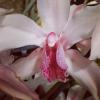Village: A Villanelle
Serendip is an independent site partnering with faculty at multiple colleges and universities around the world. Happy exploring!

***this is a retroactive posting of my writings/thoughts during one of our very first classes on January 20th. We went into Morris Woods and were told to observe and then write down words/phrases/thoughts when we returned to the classroom. What I find most interesting is how my definition of "strange" hasn't changed all that much over teh course of the semester despite how much I've thought about it.***
- little black bird so determined to knock off the bark but what does he expect to find? Not bugs?
- Wide flat mushrooms
- Snowdrops hiding under mulch
- Frost on logs, moss
- Seemed very bare at first b/c last saw it in fall (dense w/ leaves)
- Groundcover (pachysandra)

***this is a retroactive posting of an activity from class on February 5th, the first point is something I pulled from reading Coetzee's text and the rest are points made by classmates during our silent discussion***
+ presumably she was trying to… to say that rational accounts are merely a consequence of the structure of the human mind; that animals have their own accounts in accordance with the structure of their own minds, to which we don’t have access because we don’t share a language with them
= I often wonder what creatures would say if we could actually communicate

Strange is the unknown, The things and people and places we aren’t used to encountering in our own environment or “bubble.” Strange is anything out of what the majority considers normal or natural. Strange breaks the patterns we have fallen into and become accustomed to. Strange is often used to describe negative traits or occurrences but it can sometimes become positive… at this point we still label it as strange but add some other adjective or verb to prove that sometimes these out of ordinary objects and occurrences can actually open new doors and provide learning opportunities.
***this is a retroactive posting of the writing I did in class on March 17***

First thoughts on Williams:
Its’ familiar, like I’m actually being told these anecdotes sitting around in a living room or campfire. But it’s not quite, there’s still formality because it’s still written down. I really like it though because it feels casual and allows me to enjoy it and then look back later and think further into it. If I want to dig deeper and find the messages that Williams hid for the readers then I can, but it’s not necessary to do that just to soak up the stories he’s telling. I want to call it purple prose, but it’s not? It’s just really good at appealing to the senses, even with simpler word choices

An Unspoken Hunger is a great book so far. I love short stories because they're fun, simple and easy to read.
I think it's nice that she writes about the Southwest. I can relate to what she feels about the landscapes there and how she indentifies with the nature there. Reading the stories have reminded me how connected I felt to my envrionment and those living in the environment.
I also felt a bit weird when she wrote about the erotic relationship between the wild feminine and the untamed bear. I don't understand why she would use such an extreme exmaple to illustrate wildness and connection.

The book touched on how being allies at school is complicated by the fact that there is so much changeover of relationships. Teachers move between classes, students have different teachers every school year, so it can be difficult to sustain relationships but also it means that people do change teachers when they might have problematic attitudes. This made me think about schools in which teachers follow students through the grades. On the one hand, teachers have the opportunity to really deepen their allyship with their students, but also students can be stuck for more years in spaces they don't feel accepted. Like so many other things when stakes are raised, the rewards and dangers are heightened.


I have mixed feelings about this book so far. When I started off reading the first chapter, "In the Country of Grasses," I did not feel welcomed into the text. In general, I have long been uncomfortable with the idea of "safaris" - which is exactly what this was. It felt like some white tourist going on a safari through the Mara, driving in a Land Rover with a native guide, separated from the wild by the vehicle, looking at all the "exotic" creatures and wildlife around, and using the experience to validate herself as a "world-traveling and experienced naturalist." The last few lines of the chapter made me get a little sassy, where she said, "As I walk back to my tent, I stop and look up at the Southern Cross. These are new constellations for me.

While I am not particularly interested in the book, I think Williams introduces thought=provoking points. For example, when William describes how O'Keeffe tricks wanderlust men into viewing the world through "color and the integrity of organic form" (21) I couldn't help but wonder if it's actually tricking them if that is how the world is.